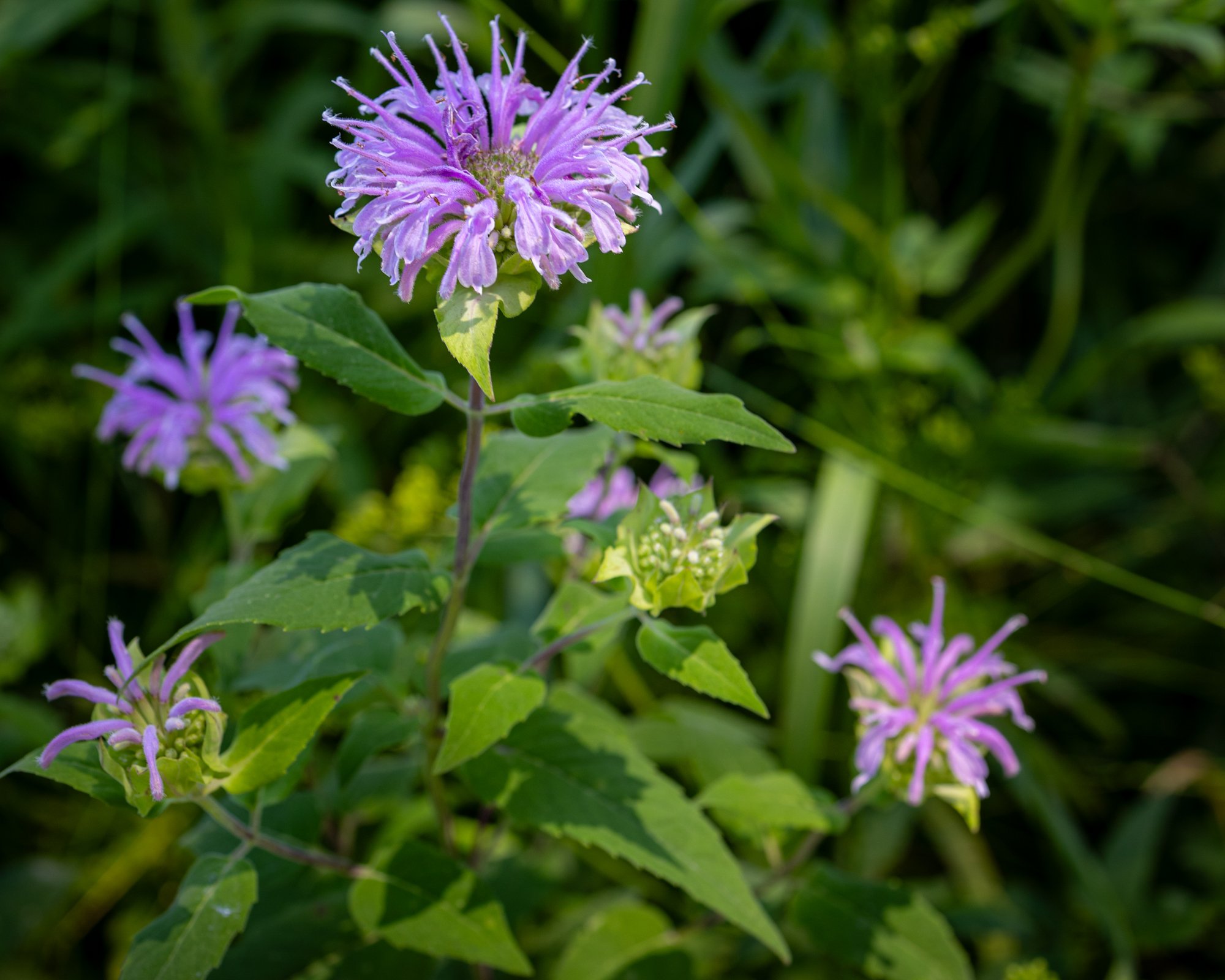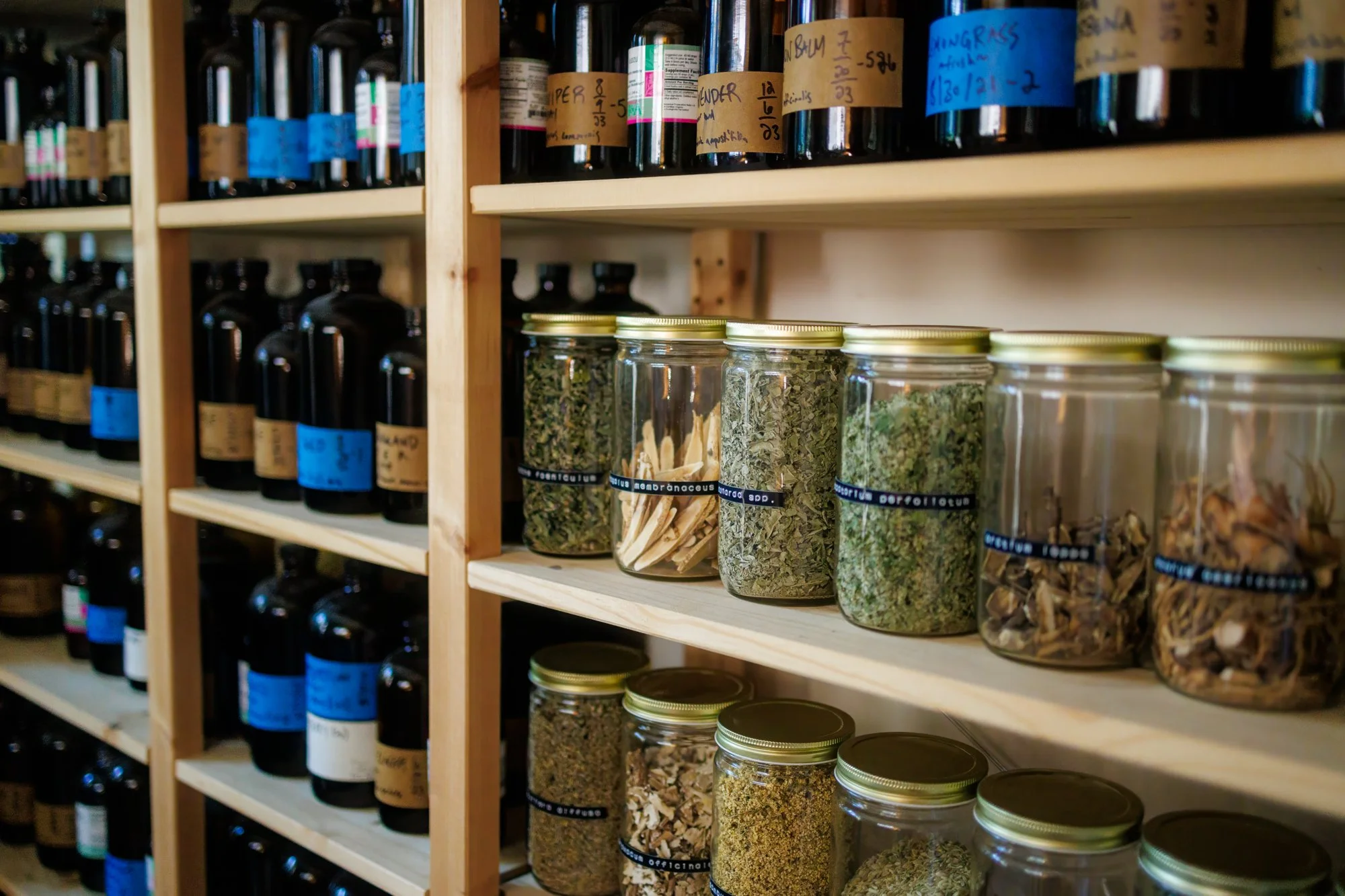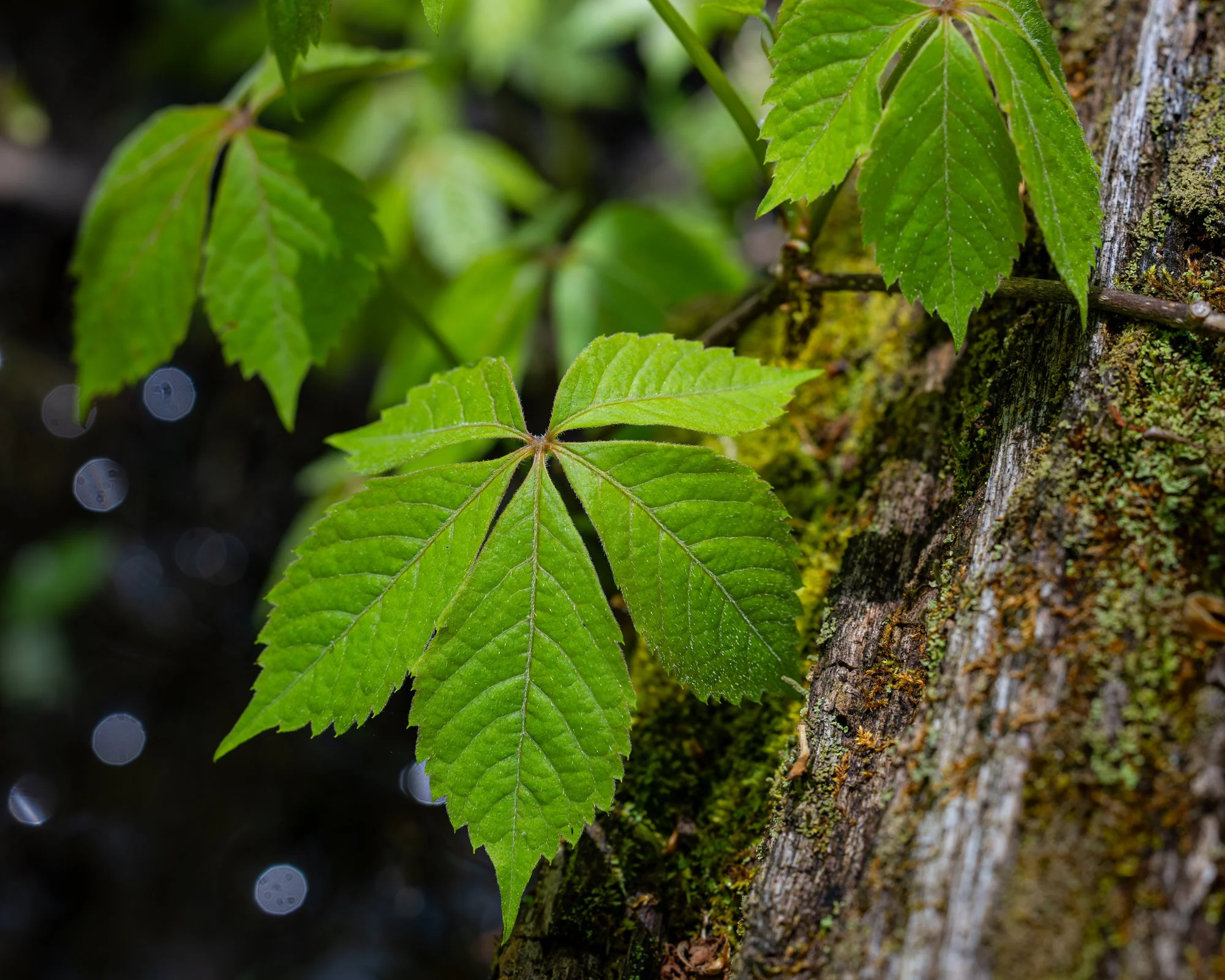
Year Two: Community Herbalism Intensive
A deep dive into the practical applications of herbs across various body systems – intended for serious students of herbalism as a stepping stone toward becoming a full-time clinical herbalist, or to provide a solid foundation for aspiring community herbalists.
This second year course is open to students who have completed the Greenspell ‘Foundations in Bioregional Herbalism’ course (or comparable study elsewhere). In this course, we work together to build upon the foundation established in the ‘Foundations’ course, toward a deeper exploration of the human body, pathophysiology, and a more nuanced application of herbs across various body systems.
We focus on actions & energetics in western herbalism, in-depth study of body systems, protocol development and case study, materia medica, apothecary management, and basic phytochemistry related to the use of herbs to support individual and community well-being & resilience.
By exploring herbalism from these different perspectives, we will come to a deeper and more practical understanding of the use of herbs than the common association of “use this herb for that ailment”. Working beyond this approach, we will rediscover the overlapping ecologies of organ systems, body, and earth and begin to relearn the power of herbs and fungi as ‘healers of all life on earth’.
Curriculum Overview
-
Picking up where we left off in the first year program, we dive more deeply into the herbal actions & energetics of Western Herbalism for a more practical and applied approach to working with herbs in a healing capacity.
We explore the six tissue states introduced in the Year One ‘Foundations’ course across a wider variety of contexts and body systems, allowing us to develop a deeper understanding of how the four humors and constitutional types inform the pathophysiological manifestations in the body and our approach in addressing these conditions that arise as a result.
In our exploration of herbs and how they impart their influence within the body, we connect herbal actions to tissue states and the phytochemical constituents that inform the herbal actions that orient the body towards healing, balance, and vitality.
-
We delve into some key body & organ systems, including the Liver, Cardiovascular, Respiratory, Urinary, Generative / Reproductive, Structural / Musculoskeletal.
We cover the digestive, immune, and neuroendocrine systems in the First Year program, but will touch on them in this class as well since they overlap significantly with the systems explored more deeply in this course.
-
We will discuss real-life examples of common health issues related to our explorations of the body systems, and work together to create a holistic herbal protocol to support the healing process for our imaginary ‘client’. We will often compare the protocols we create together in class with actual protocols I have made for clients with similar concerns in my private practice.
-
Exploration of pulse and tongue assessment along with recommendations for reading the body as a whole.
-
Overview of herbs that excel in addressing a variety of health conditions, along with a discussion of their additional virtues and energetics, how their ecological context informs their healing attributes and why you may choose one herb over another based upon the tissue state presentation and constitution of the person you are hoping to support.
-
Gain a better understanding of how herbs actually work to support healing in the body by looking closely at some key herbal constituents that are widely found in the herbal preparations that herbalists employ in practice. The deeper one understands the phytochemistry of herbal medicines, the more one comes to understand that science and magic are not mutually exclusive.
By deepening our understanding of herbal constituents, polarity, solubility, and extraction, we can also develop confidence in the efficacy of the herbal preparations we make to support our community.
-
Record keeping, systems, and processes for managing a growing apothecary.
Equipment
Storage considerations
Record keeping and batch tracking
-
Through various ‘field days’ we will go out to various Chicago parks and hone our Plant ID skills together.
Field Days are somewhat different from Plant Walks in the First Year ‘Foundations Course’ – on Field Days we are utilizing field guides, keys, and other tools to develop our plant ID skills rather than focusing on the medicinal uses of plants we encounter (which is covered in the first year plant walks.
-
Hone your skills in a specific realm of herbalism or ecology that is of particular interest to you, either alone or in a small group. At the end of the course, you will have the opportunity to present your project with your fellow students, or if you feel called, to present as a workshop or class at our end of year open house!
-
Typically held on weekday evenings, once a month throughout the course of the intensive, students will have the opportunity to drop by the apothecary to engage in complementary explorations of individual herbs through tea tastings, medicine preparation discussions, and materia medica discussions of a particular plant. Every once in a while, we may have some fresh herbs to process, allowing us to nerd out about plants as we immerse ourselves in the sensual experience of garbling to prepare an herb for medicine.
These evenings are informal and loosely structured, but provide a great opportunity for students to connect, strengthen our community of herbalists and also provide an opportunity for general Q&A for any other topics related to materials we discuss on class days. Limited to 7 students per evening to maintain intimacy. A few students from the First Year course who are participating in mentorship are also welcome to attend herb study evenings.
Herb Study Evenings will be scheduled after the intensive starts when we have a better sense of student availability.
Additional Learning Opportunities
Class Project & Open House
All current Greenspell students work together to plan and organize the Greenspell Annual Open House, which offers accessible, sliding-scale herbal preparations and learning opportunities to our Chicago Community. The Open House is typically held in October or November and acts as the culmination of our learning efforts throughout the duration of the course.
Students from both the Year 1 and Year 2 programs work together to curate, formulate, and prepare a selection of herbal preparations intended to support our community through the transition into colder months.
In past years, students have worked together to create a ‘zine’ to share our learnings and insights with our community. This is always a possibility, but requires the initiative of students to step up to make this happen!
Supplemental Online Community & Learning through the Greenspell Virtual Garden
Greenspell is about building relationship–with plants & fungi, with our bodies, with the earth, and especially with all the wonderful humans who learn and grow together over the course of this program.
So, I created a dedicated online community through an application called Heartbeat, where you'll be able to communicate, collaborate, & connect with other students from Greenspell outside of class. If you're familiar with slack or discord, it's kind of like that, but just for students of Greenspell.
Students will also have access to the Greenspell Virtual Garden, which contains hundreds of pages content related to herbalism, ecology, and foraging. Read more about the Greenspell Community & Virtual Garden.
At the end of the course, students will be added to the wider Greenspell online community (which includes alumni of past Greenspell Course years), which I encourage you to visit for years to come to reconnect and ask all herbalism, foraging, and ecology questions you may have!
Students who complete the course will have lifetime access to the Greenspell Community & Virtual Garden.
2026 Class Dates
February
Saturday, February 28 – 11:00am - 3:00pm
March
Wednesday, March 4 – 6:30pm - 9:00pm
Saturday, March 7 – 11:00am - 3:00pm
April
Wednesday, April 1 – 6:30pm - 9:00pm
Saturday, April 4 – 11:00am - 3:00pm
Wednesday, April 22 – 4:00pm - 7:00pm (Field Day)
May
Wednesday, May 6 – 6:30pm - 9:00pm
Saturday, May 9 – 11:00am - 3:00pm
June
Wednesday, June 17 – 6:30pm - 9:00pm
Saturday, June 20 – 11:00am - 3:00pm
Wednesday, June 24 – 4:00pm - 7:00pm (Field Day)
July
Wednesday, July 8 – 6:30pm - 9:00pm
Saturday, July 11 – 11:00am - 3:00pm
Late July - August
Wednesday, July 29 – 6:30pm - 9:00pm
Saturday, August 1 – 11:00am - 3:00pm
Wednesday, August 19 – 4:00pm - 7:00pm (Field Day)
September
Wednesday, September 2 – 6:30pm - 9:00pm
Saturday, September 5 – 11:00am - 3:00pm
October / November
Greenspell Annual Open House – TBD (Typically held on a Saturday or Sunday sometime between mid-October and early November)
~~~
The general structure of the class is to meet one Wednesday evening and one Saturday morning/afternoon per month on the same week. There will be some additional Wednesday evening classes added for Field Days - see above for specific dates.
All classes will be held indoors at our apothecary and classroom in West Town (333 N Oakley Blvd, Unit 101, Chicago IL 60612), with the exception of Field Days which will be held outdoors at various city parks or forest preserves throughout the Chicagoland area.
Make sure you are able to secure transportation to these areas. I will do my best to facilitate carpooling of students within the class, but ultimately, traveling to these locations is up to you. Budget for gas and time accordingly.
All meetings will begin and end promptly at the starting and end time. On Saturdays, there will be a half hour lunch break.
If a class will be held at a location other than the ones listed above, you will be given several weeks notice.
For field days, we meet rain or shine, so be prepared for exposure to the elements! In the event of extreme weather, field days may be cancelled. I do my best to offer make-up field days, but it may not be possible.
Be sure to read the Intensive FAQ linked below for all additional details and commonly asked questions.
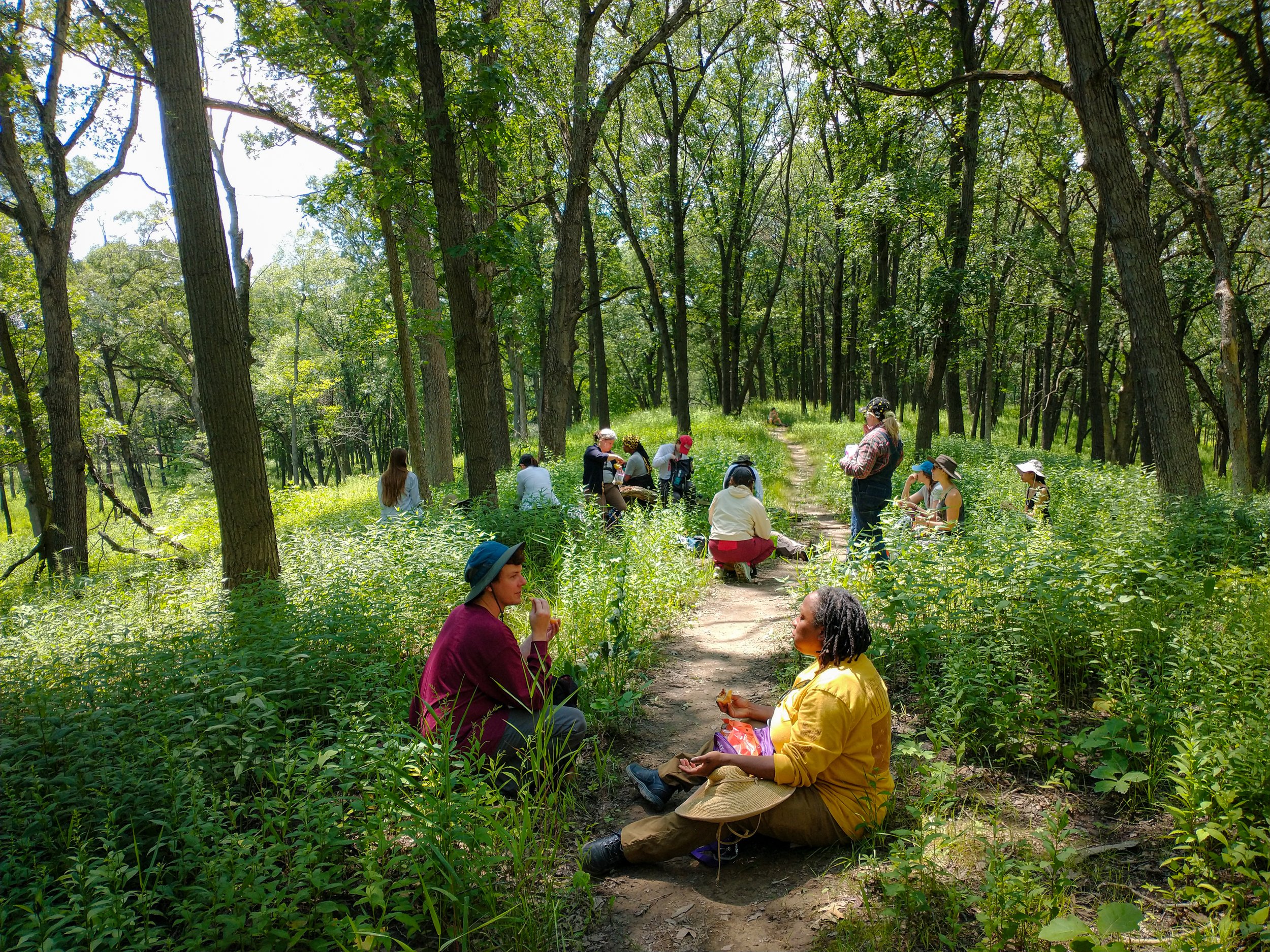

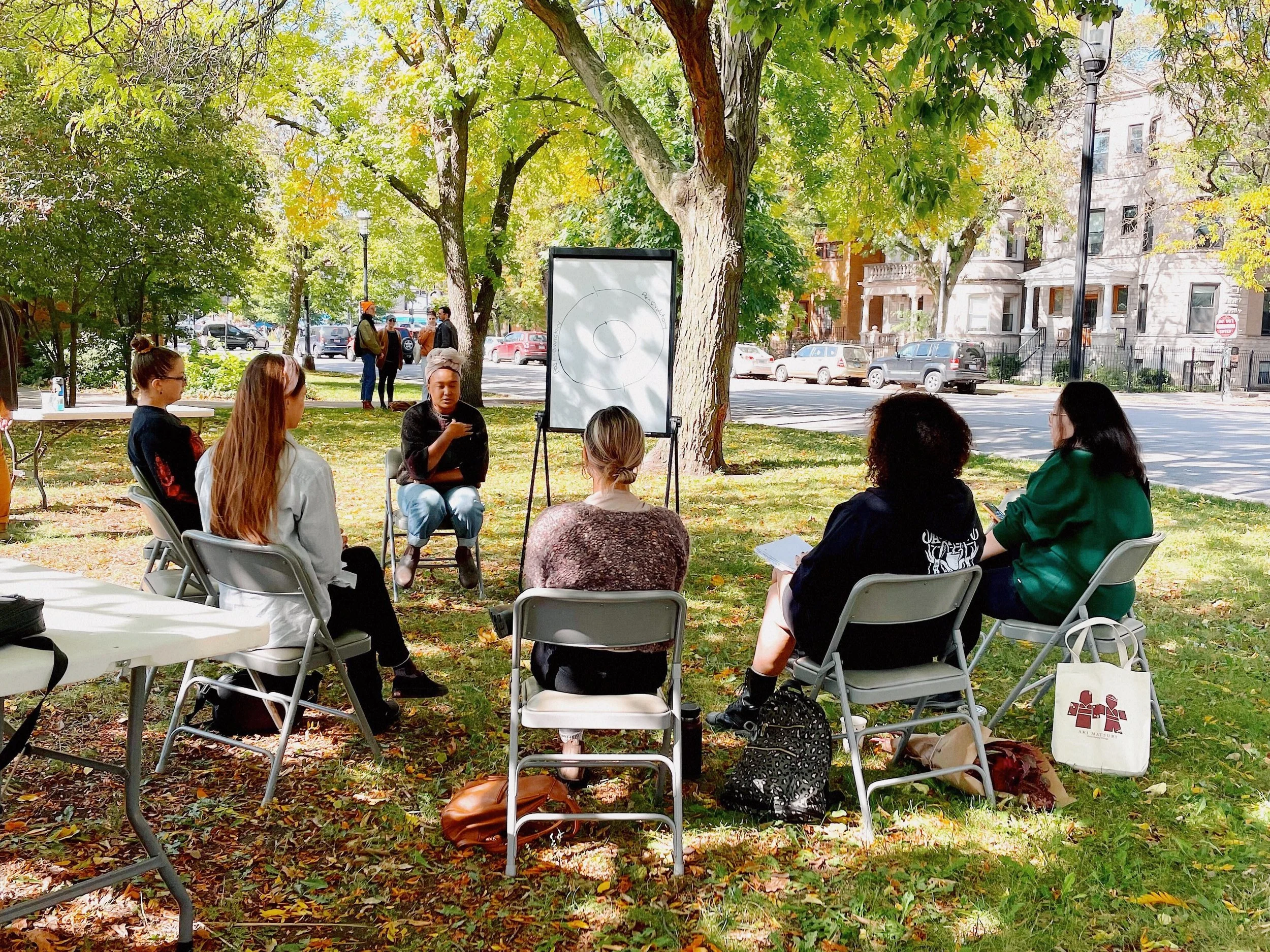
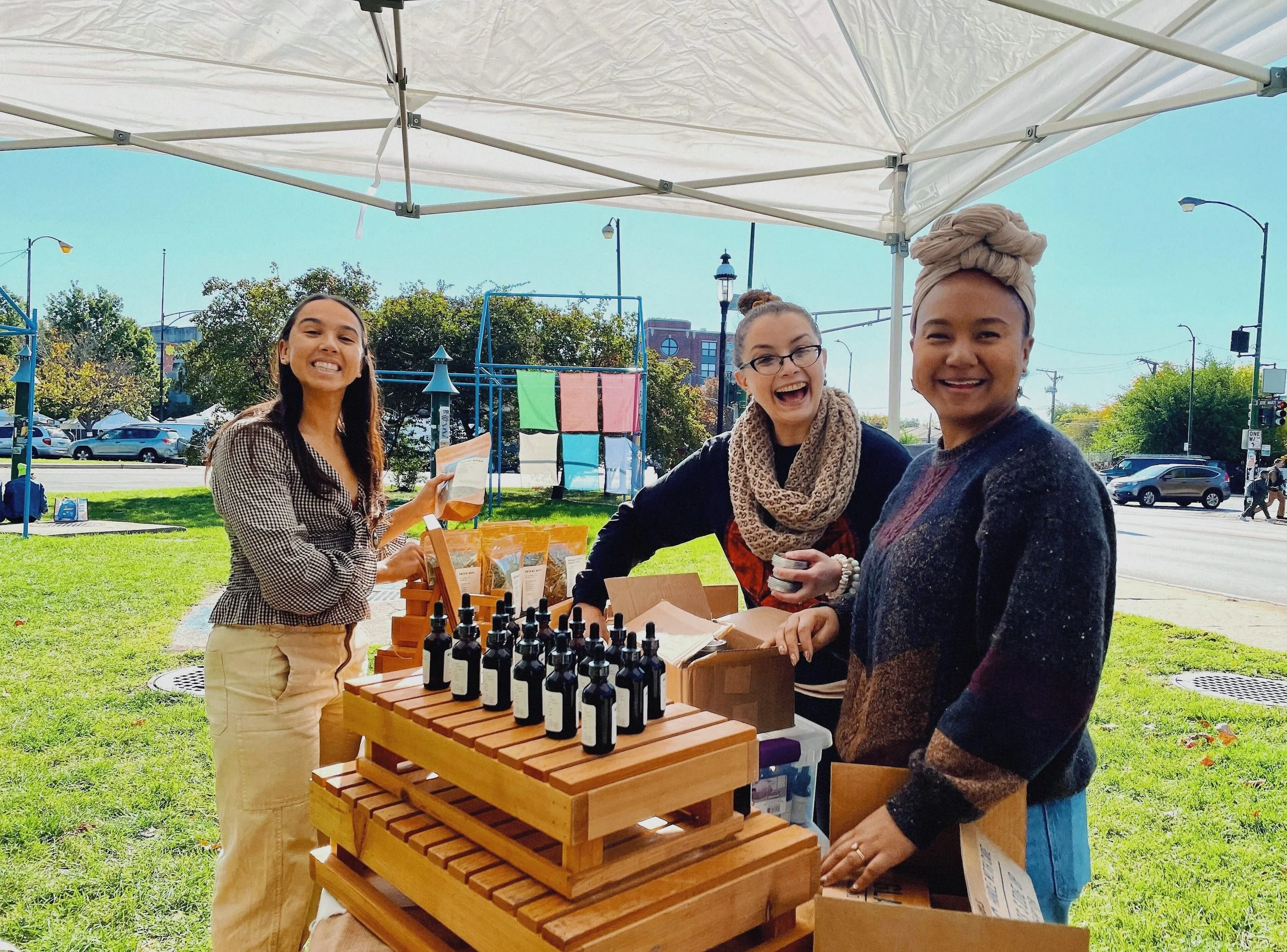
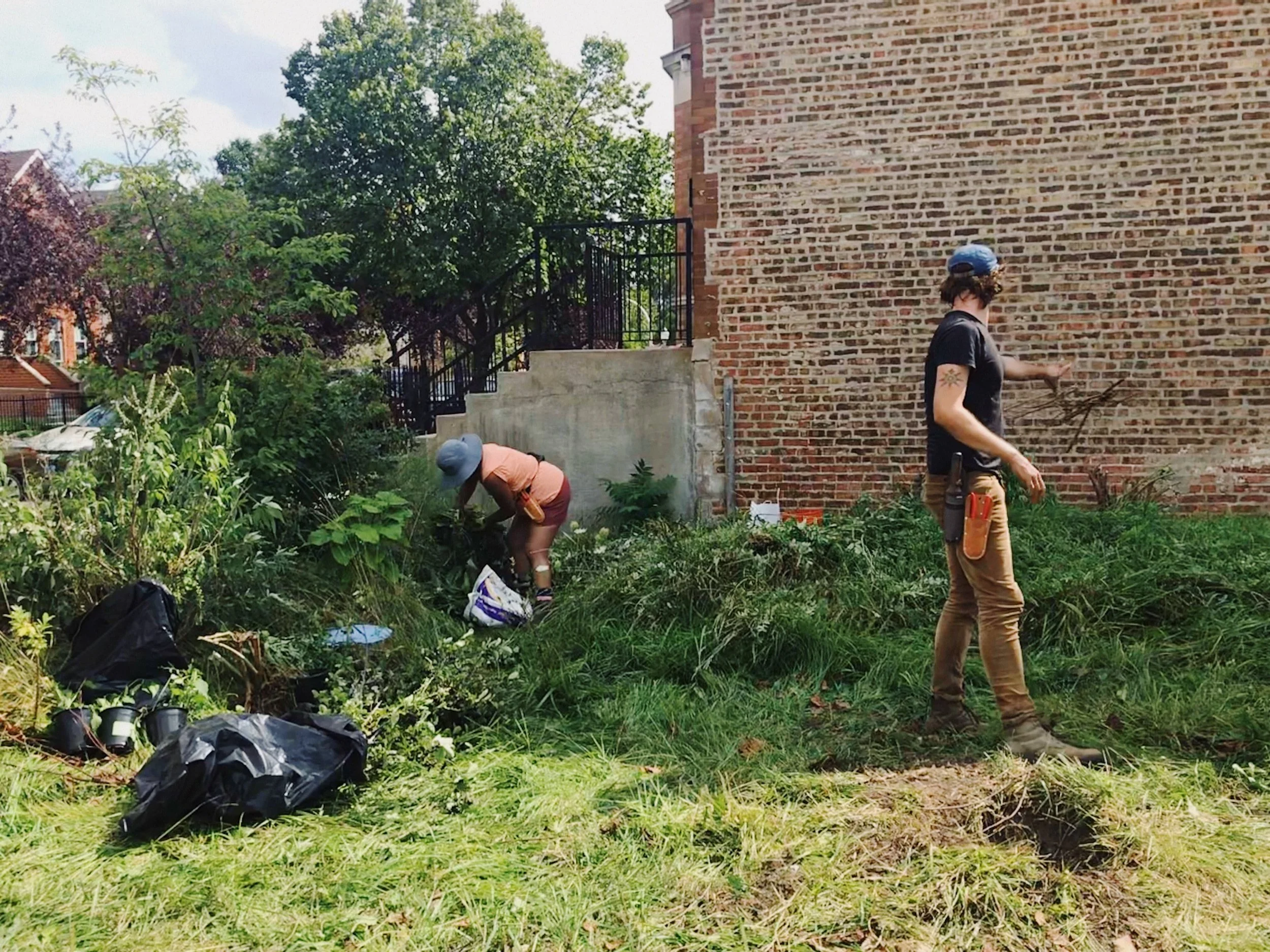
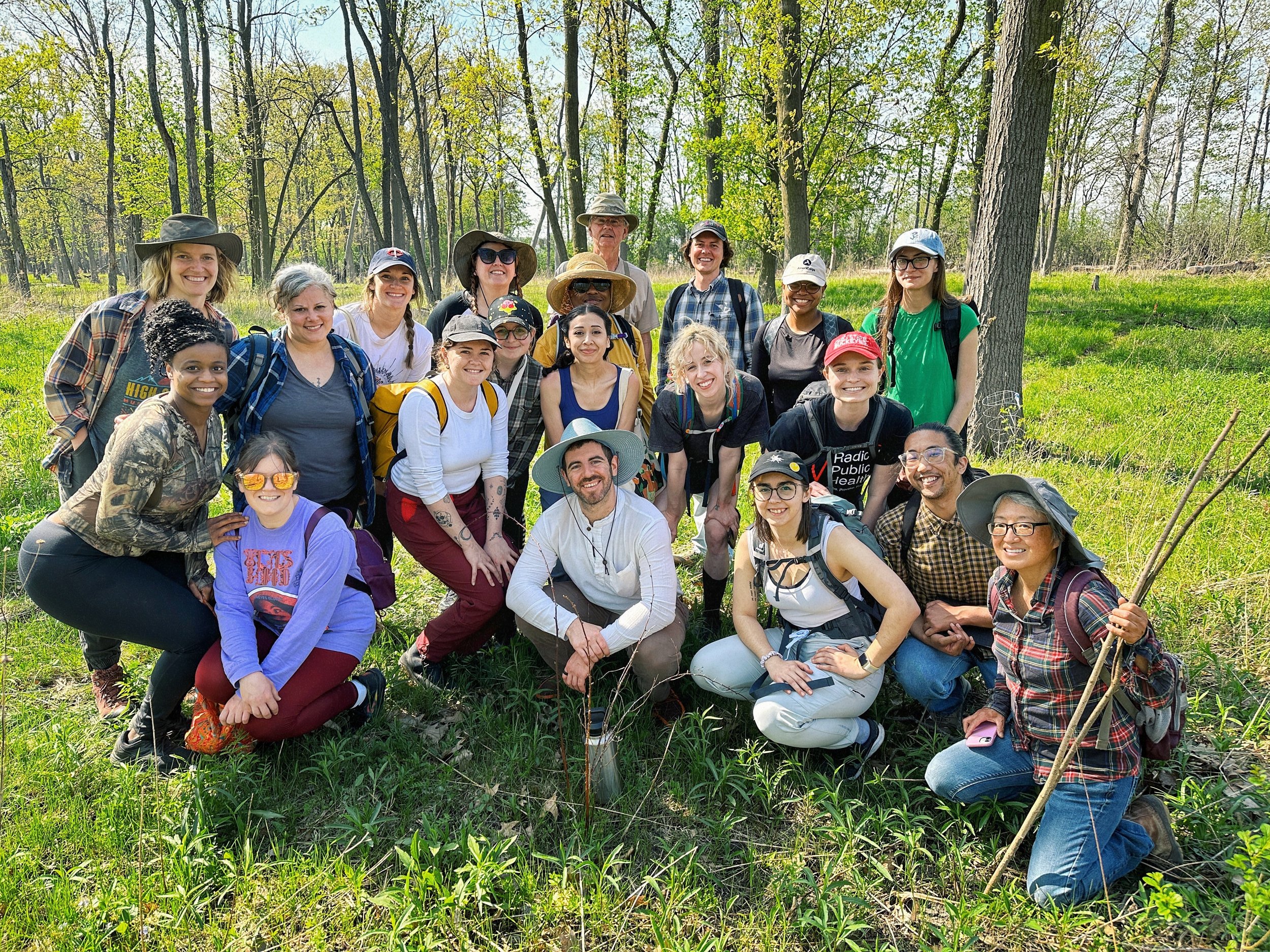
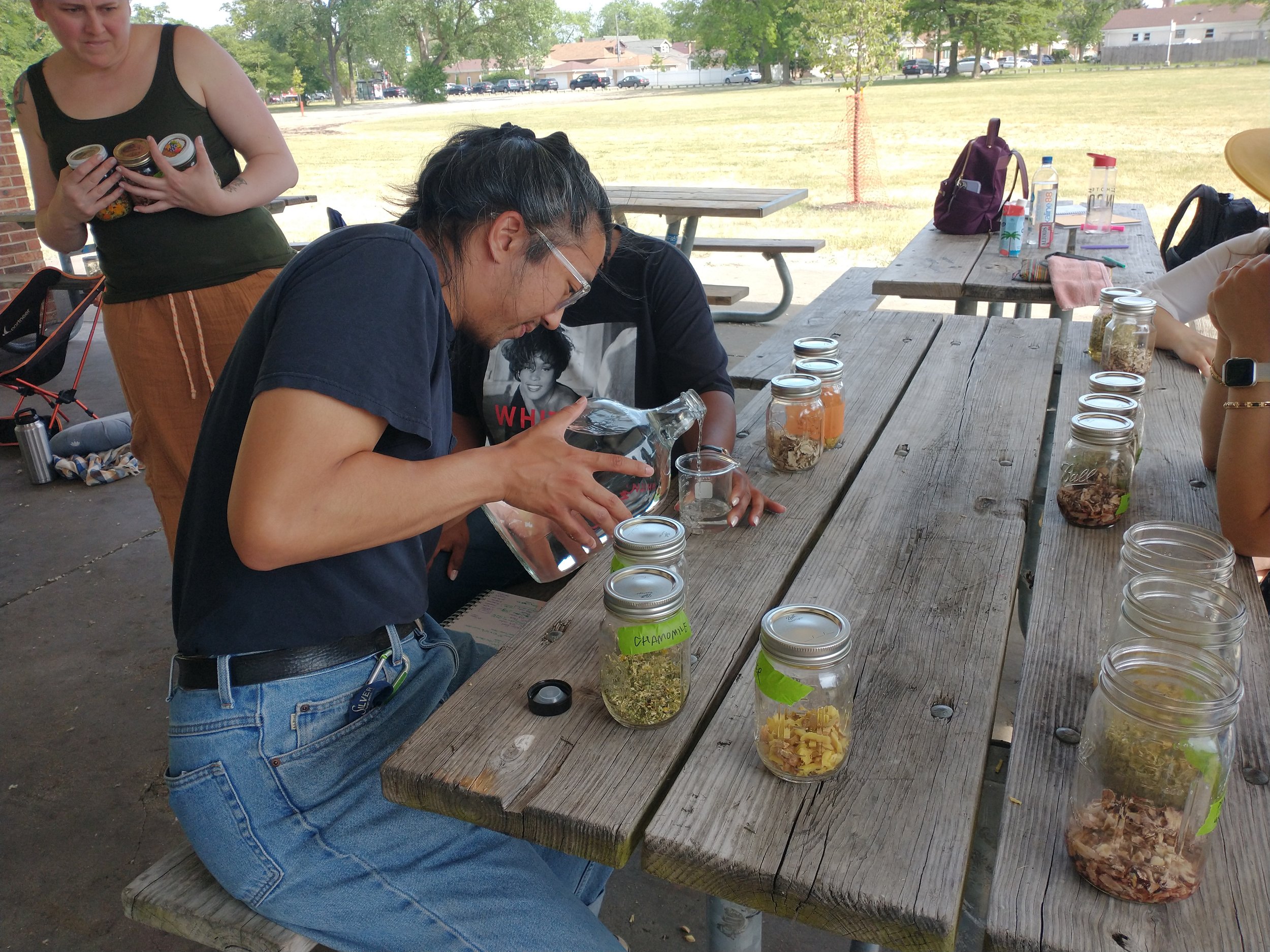






-
Submit your application – using the link below
The application window will be open from mid-November 2024 through the end of January 2025. The application window may close earlier if the class fills up.
Acceptance – Shortly after you submit your application, you will be notified of your acceptance to the intensive. – Know that priority is given to folks who are confident they can commit to the entire program.
You do not have to enroll in the Year 2 program immediately after finishing the Year 1 program – you are welcome to attend any subsequent year the course is offered as long as there are spots available. We prefer you are confident you can fully commit before applying.
If you participated in, but were not consistent in attending / did not fully complete the Year One ‘Foundations’ course (i.e. missed more than one class weekend), you will not be accepted into this program.
Each year’s cohort is limited to ~14-15 students to maintain a strong sense of community within the group.
Submit your initial payment – Once you are accepted, I will provide a link for you to submit either full payment or your initial installment of $700 – no later than 2/1/2026
Submit remaining balance (if you didn’t already pay in full) – no later than 6/1/2026
-
Submit your application – using the link below
The application window will be open from mid-November 2024 through the end of January 2025. The application window may close earlier if the class fills up.
Interview – After you apply, I will reach out to set up a time for a brief zoom interview so we can discuss details, get to know each other a bit, and field any questions you may have about the intensive.
Acceptance – Shortly after this interview, you will be notified of your acceptance to the intensive. – Know that priority is given to folks who are confident they can commit to the entire program.
Each year’s cohort is limited to ~14-15 students to maintain a strong sense of community within the group.
Submit your initial payment – Once you are accepted, I will provide a link for you to submit either full payment or your initial installment of $700 – no later than 2/1/2026
Submit remaining balance (if you didn’t already pay in full) – no later than 6/1/2026
Orientation – once you’ve submitted your initial payment, you will gain access to the Greenspell Online Community and Greenspell Virtual Garden. Get to know these online aspects of the intensive a bit by navigating through the welcome & orientation sections of each.
How to Enroll:
Year Two Intensive Cost
~ $1350 ~
The cost of this intensive is $1350. Upon acceptance to the program, you are asked to pay an initial $500 deposit which holds your spot in the program and counts toward the full cost of this program.
You may then either pay the remaining balance ($850) by February 1st, 2026 or pay in two installments of $450 (first payment by February 1, 2026 and second payment by June 1, 2026).
58 hours in-class time
~40 hours out-of-class self-study
Before applying, make sure to read over the Intensive FAQ page for common questions and other important considerations.
All students who participate in any of our multi-month programs will be granted lifetime access to the Greenspell Community & Virtual Garden.
